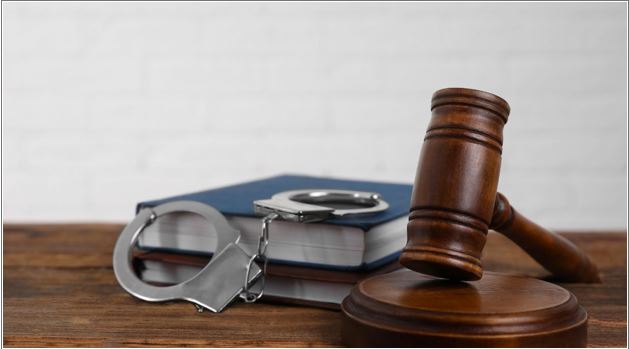How To Pick An Attorney
Finding the right attorney can be an overwhelming task, especially when you’re facing a legal issue for the first time. With so many attorneys out there, how do you know which one is the best fit for your needs? Whether you need legal representation for a criminal defense, a family matter, or business advice, choosing the right attorney is crucial. Here’s a guide to help you navigate the process of selecting an attorney that can effectively represent your interests.
Understanding Your Legal Needs
Before you even begin looking for an attorney, it’s important to assess your legal needs. The field of law is vast, and attorneys often specialize in specific areas. Are you dealing with a criminal case? A personal injury? Or do you need assistance with drafting a will or setting up a business?
Identifying your legal situation will help you narrow down your search to attorneys who specialize in the area of law that applies to your case. This can save you time and ensure that you’re working with someone experienced in the right field.
Some common legal specialties include:
- Criminal Defense: If you’ve been accused of a crime, a criminal defense attorney is essential. They specialize in defending individuals against criminal charges, ensuring that their rights are protected in court.
- Family Law: Attorneys in this area focus on divorce, child custody, and other family-related matters. A family law attorney can guide you through emotional legal processes with compassion and expertise.
- Personal Injury: If you’ve been injured due to someone else’s negligence, a personal injury lawyer can help you seek compensation for your injuries.
- Business Law: Entrepreneurs and businesses often require legal help when it comes to contracts, disputes, and regulatory compliance. A business lawyer will be well-versed in these areas.
Research and Referrals: Start With What You Know
Once you’ve identified the type of attorney you need, start your search by gathering referrals. Friends, family members, or coworkers who have been in similar legal situations may be able to recommend someone. Personal referrals are often trustworthy, as people tend to recommend attorneys they’ve had good experiences with.
However, if personal recommendations aren’t available, you can turn to online resources. Many legal directories allow you to search for attorneys by location and practice area. Websites that offer reviews of legal professionals can also help you gauge the attorney’s reputation and effectiveness.
Verify Credentials and Experience
Not all attorneys are created equal, and experience plays a significant role in legal outcomes. When considering potential attorneys, it’s crucial to verify their credentials. Check that the attorney is licensed to practice in your state, and confirm that they have experience with cases like yours.
Some questions to ask when reviewing their background include:
- How long have they been practicing law?
- How many cases similar to yours have they handled?
- What is their success rate?
It’s also worth considering any disciplinary actions the attorney may have faced. Many state bar associations provide information on whether an attorney has been disciplined for unethical conduct. A clean record is a good indicator of professionalism.
Initial Consultation: What to Look For
Most attorneys offer an initial consultation—usually free or for a low fee—where you can discuss your case and evaluate whether they’re the right fit. This meeting is your opportunity to assess their communication style, their understanding of your case, and whether you feel comfortable with them representing you.
Here are a few key points to pay attention to during the consultation:
- Communication: Does the attorney listen to your concerns? Are they clear in explaining legal terms and processes? Communication is essential in any attorney-client relationship. You want an attorney who can explain complex legal matters in a way that makes sense to you.
- Approach to Your Case: Does the attorney have a strategy in mind for your case? Do they seem confident in their approach? A good attorney will give you a realistic outlook on the strengths and weaknesses of your case.
- Personality: Legal matters can be stressful, so it’s important to work with someone you feel comfortable with. While you don’t have to become best friends with your attorney, having mutual respect and trust will make the process easier.
Ask About Fees and Costs
Legal representation can be expensive, and it’s important to discuss fees up front. Attorneys use different billing methods depending on the case type, so make sure you understand how they charge for their services. Common billing structures include:
- Hourly Rate: The attorney charges a set amount for each hour of work. This is common in most types of legal cases.
- Flat Fee: For simpler cases (such as drafting a will or handling a minor legal matter), the attorney may charge a flat fee for their services.
- Contingency Fee: In some cases, like personal injury, the attorney may not charge you up front. Instead, they take a percentage of your settlement if you win the case. If you don’t win, you typically don’t pay the attorney.
It’s also important to clarify any additional costs, such as court filing fees, expert witness costs, or administrative fees. Make sure you have a clear understanding of the financial commitment before moving forward.
Reputation and Reviews Matter
In today’s digital age, it’s easier than ever to check an attorney’s reputation. Online reviews can give you an idea of what to expect when working with a particular lawyer. While one or two negative reviews shouldn’t necessarily disqualify an attorney, you should pay attention to patterns in the feedback. Do multiple clients mention the same issues, such as lack of communication or unexpected fees? These are red flags you may want to avoid.
Also, check to see if the attorney has been recognized for their work. Awards or recognition from legal organizations can be a good sign that they’re respected in their field.
Consider the Attorney’s Availability
When you’re facing a legal issue, timing can be critical. You want an attorney who is available to take your case and can dedicate the necessary time and attention to it. Some attorneys may have heavy caseloads, which can delay your case or make it difficult to get in touch with them. Be upfront about your expectations regarding communication and timelines, and make sure the attorney can meet them.
Ask questions like:
- How often will I receive updates on my case?
- Will I be communicating directly with the attorney, or will most interactions be through a paralegal?
- How quickly do they typically respond to phone calls or emails?
An attorney who is too busy to take your calls or keep you informed may not be the best fit, especially if your legal matter is urgent.
Trust Your Instincts
At the end of the day, choosing an attorney is a personal decision. Even if an attorney checks all the right boxes in terms of credentials and experience, it’s essential to go with someone you feel comfortable with. Legal matters can be stressful, and you’ll be spending a lot of time with your attorney. Trust your instincts and choose someone who you believe will advocate for your best interests.
Conclusion: Finding the Right Attorney Takes Time
Choosing the right attorney is an important decision that can greatly impact the outcome of your legal matter. By assessing your legal needs, doing thorough research, and meeting with potential candidates, you can find an attorney who will provide the legal representation you need. Whether you’re dealing with a complex legal issue or a straightforward matter, having the right attorney by your side can make all the difference.
If you’re in the Tulsa area and looking for legal representation, it’s important to find someone who understands both the local laws and your specific needs. There are many lawyers Tulsa has to offer, but taking the time to choose the right one will ensure that you’re in good hands.
No matter where you are, the right attorney can guide you through the legal process with confidence and expertise. Take the time to make an informed decision, and you’ll be well on your way to resolving your legal matter effectively.



